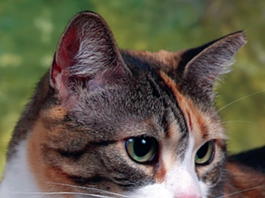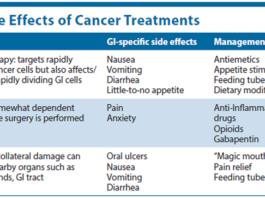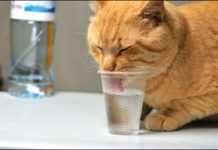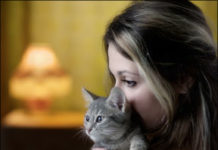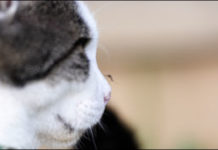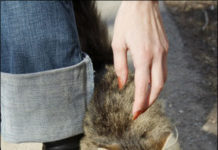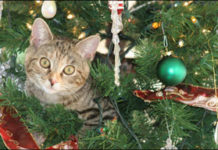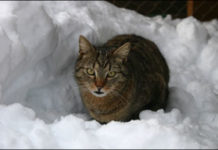Til Death Do Us Part
Many of us have spent considerable time planning for the care of our family members in the event that we die or become incapacitated. Unfortunately, though, we often fail to consider the needs of our smallest family members: our pets. In the past, most pet owners didnt think about making formal arrangements for their cats in their wills. But all thats changing, according to David Congalton, co-author of When Your Pet Outlives You: Protecting Animal Companions After You Die.
Diagnosis: Kidney Disease
Your cats kidneys play a central role in almost all of its bodily processes. They help to control the blood pressure and regulate the amount and chemical consistency of fluid in the bloodstream. They produce a variety of vitally needed hormones and enzymes, and they contribute to the production of red blood cells. They also remove metabolic waste, such as urea, mineral salts and poisonous substances, from its blood. This is accomplished by kidney (renal) tissue containing hundreds of thousands of tiny filtration units called nephrons. When waste-laden blood enters the kidneys through the renal artery, it moves through progressively smaller vessels until it reaches these nephrons, where it is filtered through microscopically minute structures called glomeruli. The cleansed blood about 95 percent of the total fluid volume that originally entered the kidneys then circulates back to the heart for yet another voyage through the body. Meanwhile, the remaining fluid, containing the waste products, is passed along as urine from the kidneys to the bladder and eventually excreted.
Finding a Cat a New Home
Your sister is moving to Japan for her job and she cant take her cat with her. Shes devastated and turns to you for help. But you already have three cats and cant take on another. You cant imagine ever having to give up one of your own cats, but dealing with your sisters situation is almost as bad. What do you do? Someday, you may need to find a home for your own cat. But there are a number of things to try before deciding that a cat cannot stay where she is. And if it becomes absolutely necessary, heres some help in finding her a new home.
The Female Cat in Heat
The yowls of a cat in heat are unmistakable. When a female cat needs to mate, you should expect incessant crying, strange posturing and constant attempts to escape outdoors to waiting males. The best thing you can do about your cat in heat is to prevent it from happening in the first place. Its a smart idea to have her neutered before her first heat cycle. However, sometimes thats not possible. So if youve never witnessed a cat in heat, heres what you should expect.
Feline Heartworm Infection: Serious
As springtime arrives throughout the U.S., the steamy days and nights of summer cannot be far behind. This means, of course, a proliferation of mosquitoes. For you, this is an annoyance. For your cat, these bothersome little creatures can pose a major health problem. Among all of the various disorders that can endanger a cats physical well-being and perhaps threaten its life, few are more insidious than feline heartworm disease, a potentially life-threatening condition that occurs when a parasitic worm called Dirofilaria immitis gets into an animals system. And the only way in which this worm can enter your cats body is through a mosquito bite.
The Truth About Toxoplasmosis
Toxoplasmosis is a fairly common zoonosis (a disease that can be shared between humans and animals); 30 to 40 percent of adult humans, and roughly the same percentage of cats, have antibodies that indicate prior exposure to the organism that causes the disease. Prevention is Best. Nevertheless, its particulars are still unfamiliar to many people. The disease poses a threat primarily to fetuses and to immunosuppressed patients, but an understanding of the organisms life cycle, how transmission occurs and can be avoided, and the signs of infection can greatly reduce the risk of serious disease.
Your Cats Whiskers
The old-fashioned term "the cats whiskers" means the height of perfection or first-rate. Popular in the 1920s, this expression, along with "the cats meow," referred to the daring flappers described as "impossible to shock." While the term is American in origin, people have disagreed over who deserves credit for coining it. Regardless, the phrases meaning shows that the people who first used the expressions certainly understood the unique capabilities of your felines most sensitive hairs. Cat whiskers - also called tactile hairs - are found on your cats eyebrows, chin, cheeks and in an area behind its forelegs above the paw. They are two to three times thicker than other hairs and taper to a fine, flexible tip. Approximately 12 of these stiff bristles align in four rows that protrude from either side of the cats muzzle. The top row moves independently of the middle row.
Diagnosis: Feline Lymphoma
The feline lymphatic system an exquisitely structured arrangement of internal organs and tissues directly or indirectly influences every aspect of a cats physical existence. For this reason, owners should be equipped to recognize the signs that suggest the presence of feline lymphoma, a potentially deadly cancer of the lymphatic system that can assault many areas of a cats body, including its liver, gastrointestinal system, spleen and skin.
Adopting a Neighborhood Stray
Several years ago I came home to my first apartment and was greeted by my best friend, grinning from ear to ear. "Theres a surprise in your bathroom!" she exclaimed. That surprise turned out to be an adorable stray kitty from her hometown. "Nana" soon revealed herself to be an amazingly adaptive cat that was happy just basking in our love and attention, but the road to domestic bliss was certainly not without its bumps. In hindsight, there were several steps we could have taken to make the transition a bit smoother. In fact, there are several potential problems when bringing an outdoor cat (e.g. a neighborhood stray or barn cat) indoors to live; however, if you anticipate these problems - and address them accordingly - they can be greatly minimized.
Hazards of the Holiday Season
Cats, being the inquisitive creatures they are, appreciate things that are new and different. Because the holidays bring an array of novel and interesting stimuli into the home, the curious kitty can certainly get into trouble. For the climbing kitty, a holiday tree offers the excitement of the outdoors inside the home, and even an undecorated tree is not without risk. Unless the tree is anchored, the results can be devastating. "Ive heard many stories about Christmas trees coming down," says Pamela Perry, DVM, lecturer in farm-animal behavior at Cornell Universitys College of Veterinary Medicine. Anchoring your tree to the ceiling or back wall with a cup hook and some wire or string may keep your cat and your tree from coming to harm.
Does Your Cat Love Too Much?
Cats learn to form attachments and to give and receive affection within the first weeks of life. If a human interacts with a kitten during those crucial weeks, the kitten is likely to enjoy human contact and even relish affection. Most cats and their human companions have similar needs for affection. Both enjoy being approached for petting or a cuddle. On the other hand, some companions complain that their cats are too standoffish, not letting them hold them or sit on their laps. But then theres the other group of companions who complain about their cats constant neediness, clinging and crying for attention.
The Real Danger of Hypothermia
Cats whose breed developed in frigid areas of the world are likely to tolerate cold weather better than cats whose origins can be traced to more temperate regions. But even the fattest, furriest Maine coon will have only a slight edge over a trim, thin-coated Siamese when it comes to prolonged exposure to the biting winds, ice, snow and sleet that come with winter. Indeed, any cat that is left outside for extended periods of time when the temperature is below freezing - not to mention any poor creature that happens to tumble into an ice-cold pond - will be at risk for a potentially deadly drop in body temperature. The chances that this condition - called hypothermia - will prove fatal depends largely upon the animals age, overall physical condition and ability to regulate its body temperature, says Dr. Gretchen Schoeffler, chief of emergency and critical care services at the Cornell University Hospital for Animals.



